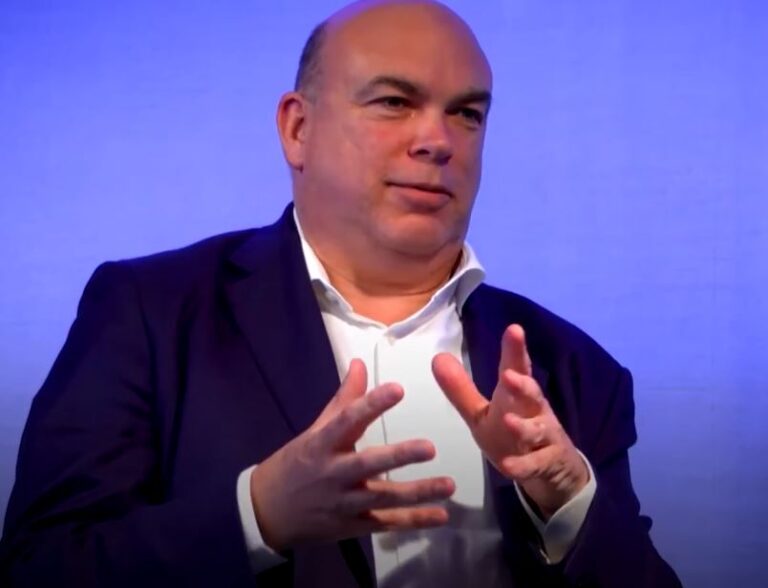Mike Lynch was remarkably successful at turning undeveloped mathematical talent into commercial innovation. Prior to Autonomy Corporation’s 2011 $11 billion acquisition by Hewlett-Packard, it was one of the most prosperous software companies in the United Kingdom. Lynch gained the unofficial moniker “British Bill Gates” during the height of his prominence because he was regularly likened to tech behemoths like Bill Gates. Once firmly established at $1 billion, his net worth was a mainstay on the Sunday Times Rich List and the Forbes Billionaires List. That estimate has, however, been drastically lowered in recent years.
A year earlier, Lynch and his wife, Angela Bacares, were valued at £852 million; by 2024, their estimated net worth had dropped to £500 million. The lead-up to and following of a widely reported court case involving claims of fraud related to the Autonomy-HP deal coincided with this sharp decline. However, in a particularly unexpected development, Lynch was found not guilty of any of the 15 felony charges by a U.S. federal court jury. Judge Charles Breyer had previously dismissed one count, but the overall verdict represented a major legal and reputational win for the troubled businessman.
Mike Lynch – Bio & Financial Table
| Attribute | Details |
|---|---|
| Full Name | Michael Richard Lynch |
| Known As | Mike Lynch |
| Birthplace | Carrick-on-Suir, Republic of Ireland |
| Citizenship | United Kingdom |
| Age | 60 (as of 2025) |
| Education | Doctorate and BA/BS, University of Cambridge |
| Profession | Tech Entrepreneur, Investor |
| Notable Companies | Autonomy Corporation (Founder), Invoke Capital (Founder) |
| Major Achievement | Sold Autonomy to Hewlett-Packard for $11 billion in 2011 |
| Net Worth (Peak) | $1 Billion (2014–2015, Forbes) |
| Net Worth (2024) | Estimated £500 million (~$635 million) |
| Residence | Loudham Hall, Suffolk, UK |
| Interests | Jazz saxophone, rare breeds, Red Poll cattle farming |
| Recent Legal Outcome | Acquitted of all major charges in U.S. fraud case (2024) |
| Verified Source | Forbes Profile |
Lynch had established a reputation for providing especially creative solutions in the area of unstructured data analytics through calculated investments and intellectual capital. Advanced pattern recognition and signal processing technologies, which Lynch started creating while a Cambridge student, were the foundation of Autonomy’s success. During the Silicon Fen tech boom, Autonomy was not just another tech company; it was the biggest software company in the UK for a while.
However, things changed suddenly after the HP deal. Lynch’s empire was marred by accusations from HP executives that Autonomy had falsified its financial records. Even though there was insufficient evidence to close the UK’s Serious Fraud Office’s investigation in 2015, HP’s civil suit continued for years, harming the company’s reputation and sparking a lot of media conjecture. At one point, Lynch’s $800 million personal gain from the Autonomy sale was the subject of public scrutiny and legal action in addition to being seen as a commercial success.
Lynch continued to be clearly active during this tumultuous time. He established Invoke Capital, a venture capital firm that focuses on European tech startups and frequently makes investments in AI and cybersecurity firms like Darktrace that are incredibly successful. Darktrace would notably grow to become one of the fastest-growing tech companies in the UK. Lynch’s early vision helped Darktrace maintain its relevance and momentum despite the company’s own public image issues.
The story of Lynch has taken a tragic and humanizing turn in recent years. The couple was on board the opulent superyacht Bayesian, which was named after the Bayesian statistical models that form the basis of Autonomy’s software, off the coast of Sicily in 2024 when tragedy struck. The ship was overturned by a strange waterspout. Lynch lived, but his daughter Hannah went missing, which was a sad side note to what should have been a celebration of his legal triumph. While the divers continued their work in extremely challenging conditions, his wife, who had been rescued and was apparently in shock, sought safety in an Italian hotel.
Lynch’s ascent and controversies have had a particularly complicated social impact. Some contend that his legal issues demonstrated the growing conflict between rapid tech expansion and regulatory oversight, while others see him as an example of British innovation unfairly singled out by larger U.S. corporations. Lynch’s story, however, reflects remarkably similar trends seen in other well-known tech entrepreneurs: bright minds sucked into protracted legal disputes because of murky financial tactics, valuation games, or cross-border miscommunication. Cases involving executives such as Elizabeth Holmes of Theranos or even Mark Zuckerberg’s data privacy issues have been compared.
Lynch, however, came out of the legal system unharmed, his acquittal drawing a distinct line in the sand for the courts. Lynch is incredibly diverse in his interests and still enjoys the country at his estate in Suffolk, where he cares for rare cattle breeds and discreetly pursues new tech projects through his investment company. A man who has lived multiple lives within one is depicted by this stark contrast between high-stakes litigation and pastoral tranquility.
Lynch’s journey highlights the value of both legal tenacity and intellectual rigor in the context of British entrepreneurship. Even though his financial situation has significantly changed, his influence has not diminished. He has made incalculable contributions to UK tech, especially in nurturing a generation of AI-driven startups. Lynch’s continued influence on startup ecosystems and technological discourse may be more significant in the years to come than whether or not he completely restores his billion-dollar fortune.
